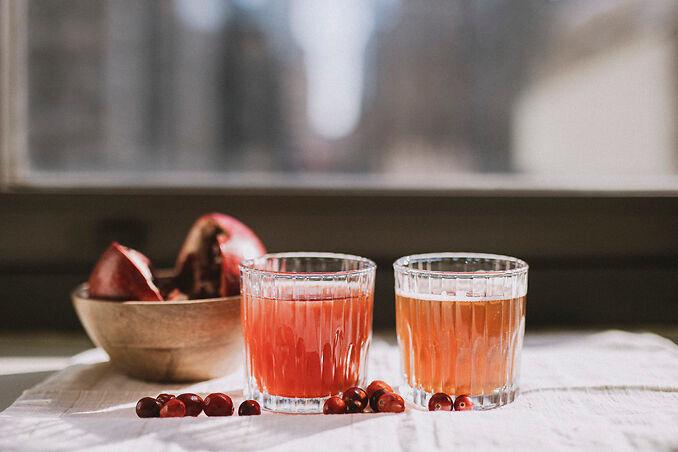When Tolu Obikunle was an intern on Wall Street, she was frequently invited to go out for drinks after work. But filling up with spirits was actually something that brought Obikunle’s spirits down.
“I found myself pretending to drink just to fit in with my colleagues,” said Obikunle. “I loved being out and socializing, but I did not like the feeling of getting buzzed.”
Obikunle couldn’t keep her feelings bottled up for much longer, and pretty soon, she uncorked Sapiens Beverage Company, a line of fine, non-alcoholic wines.
The company turns out full-bodied reds, sparkling rosés, and chardonnays that could easily fool the discerning palate of a traditional wine connoisseur.
Their wines start out with alcohol in them but then undergo a complex dealcoholization process called “vacuum distillation.” The wine is heated to a boil, beginning the separation process. The alcohol is suctioned out while a careful balance of temperatures is kept to continue the dealcoholization process while preserving the wine’s flavors and aromas.
“It can get pretty darn scientific,” said Obikunle.
She is far from the only teetotaler who has turned a disinterest in alcohol into one very intoxicating success story.
Makers of non-alcoholic wine, beer, aperitifs, gins, vermouths, bourbons, rums, and an array of cocktails sophisticatedly crafted into adult drinks are drinking up some pretty impressive profits while lifting the spirits of nephalists.
The already $923 million global non-alcoholic industry (which includes coffee, tea, bottled water, fruit beverages, and other traditional non-alcoholic drinks) is expected to see more than 8 percent growth annually, according to Fior Markets, which tracks and predicts global market trends.
Tastewise, a research and analytics company specializing in the food and drink industry, recently reported that web searches for non-alcoholic beverages shot up nearly 50 percent in just the past year.





